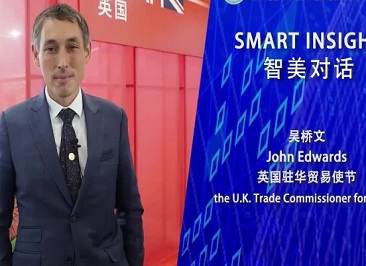Tea tourism warms up in Liangjiang
Updated:2018-09-13
chinadaily.com.cn
 |
|
The majestic Chashan Bamboo Sea in Chongqing's Yongzhou district. [Photo provided to chinadaily.com.cn] |
In recent years, Southwest China's Chongqing has developed a tea economy based on Yongchuan Xiuya Tea, a type of Chinese green tea.
The district has declared Yongchuan Xiuya Tea as a local signature tea and has turned it into a source of wealth for the district.
Yongchuan's tea industry has been developing rapidly in recent years. The tea planting area has reached 80,000 mu and produces 6,200 tons of tea every year, valuing 656 million yuan ($95.54 million).
The output value of tea production ranks first in the districts and counties of Chongqing. The tea trees are mainly clones of superior varieties and account for 70 percent of the total tea varieties.
Yongchuan Xiuya Tea is the earliest public brand of Chongqing tea that has obtained China's geographical indication certification. It has won the titles of "Top Ten Geographical Names of Famous Tea in China", "China's Excellent Regional Public Brand of Tea" and "Chongqing Top 10 Regional Public Brands".
The tea is produced in the mountainous areas of Yunwu Mountain, Yinshan Mountain, Bayue Mountain and Lushan Mountain. It was developed and produced by the Tea Research Institute of Chongqing Academy of Agricultural Sciences in 1959.
Appraised by the Tea Quality Testing Center of the Ministry of Agriculture, the acid content of Yongchuan Xiuya Tea is 4.6 percent, the tea polyphenol content is 21.2 percent, and the caffeine content is 2.5 percent.
With high acids, high tea polyphenol and low caffeine, Yongchuan Xiuya Tea has is considered to be a high-quality tea. It can lower blood sodium levels and prevent tooth decay, and has anti-oxidation effects.
Yongchuan not only has contiguous tea gardens, but also has many bamboo forests. Chashan Bamboo Sea is one of Yongchuan's famous tourist attractions.
The district will construct boutique tea garden scenic spots and rural tourist attractions, develop special tea products and hold tea-themed festivals in order to promote the integration and coordinated development of tea and tourism.
Yongchuan has promoted the "company + base + farmer" model to improve enthusiasm for planting among tea farmers.
Companies unify the planning, construction and management of tea gardens, return them to farmers after three years, and then purchase fresh tea at the protection price.
This new business model not only solves management problems , but also guarantees a basic income for tea farmers.
In order to promote the development of the tea industry, Yongchuan has focused on agriculture-related funds in 15 areas, including rural roads, access roads, water conservancy and land management.
Every year, more than 20 million yuan is used to improve the infrastructure of tea gardens, and another 20 million yuan is spent on the renewal of tea production bases, processing plants and equipment.
Since 2003, Yongchuan has successfully held eight sessions of the International Tea Culture Tourism Festival and two sessions of the Tea Competition.
Major activities of the Tea Competition, including the exhibition of famous tea and tea sets, technical seminars, and a tea culture and global tourism forum, have enhanced the influence of Yongchuan Xiuya Tea.
At the 8th International Tea Culture Tourism Festival and the 2nd Tea Competition, Yunhe Yongchuan Xiuya Tea won the top prize due to its unique appearance, aroma, color and taste.
 |
|
Yunhe Yongchuan Xiuya Tea won a gold medal at the 8th International Tea Culture Tourism Festival in Chongqing's Yongchuan district. [Photo provided to chinadaily.com.cn] |
In the next five years, Yongchuan plans to build three tea-themed complexes and develop a number of team-themed rural tourism attractions to help local villagers and promote rural revitalization.
Video

John Edwards, the UK trade commissioner for China, praised Chongqing over its rise as a burgeoning center in intelligent manufacturing.





